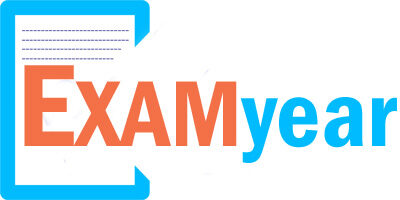Cloze Test for IBPS PO Prelims Preparation
Download the Cloze Test for IBPS PO Previous Papers. Applicants can check the Institute of Banking Personnel Selection PO Old Cloze Test Papers provided below. You can find free download links of Institute of Banking Personnel Selection PO Exam Previous Question Papers on Cloze Test.

Aspirants can use these IBPS PO Cloze Test Solved Papers as a reference. Go through the below sections to get Cloze Test for IBPS PO Exam Pattern in addition to the Previous Year Question Papers.
The IBPS PO English language cloze test paper is given here. Also, check the Cloze Test for IBPS PO Prelims Pattern. Also, download the Cloze Test for IBPS PO Model Question Paper Pdf link in the section following.
IBPS PO English Language Cloze Test
Directions: In the following passages there are blanks, each of which has been numbered. These numbers are printed below the passage and against each, five words are suggested, one of which fits the blank appropriately. Find out the appropriate words.
Cloze Test Practice Set |
Exercise – 1
Once Gurudev Tagore asked Gandhiji: “Gandhiji, are you ———–1——- unromantic? When in the early ———–2——— the morning sun rises does it not ————–3——— your heart with joy to see its reddish glow? When the birds ———–4——— does not your heart thrill with its ——–5——– music? When the rose opens its petals and blooms in the garden, does its sight not bring ——–6———– to your heart?” The Mahatma replied, “Gurudev, I am not so dumb or ———–7——— as not to be moved by the beauty of the rose or the morning rays of the sun or the music of the birds. But what can I do? My one ————8———-, my one anxiety, my one ambition is: When shall I see the red tint of the rose on the cheeks of ————9———— ———-10———– millions of my people? When shall I hear the sweet and melodious song of the birds in place of their ————-11——— sighs – when will such music ————12————– out of their soul? And when will that ————13———- come, when the light of the morning sun will ————-14———— the heart of the common man in India? When will I see its lustre and ———-15——— on his face?”
1. 1) not 2) genuinely 3) seldom 4) so 5) fairly
2. 1) season 2) dawn 3) monsoon 4) climate 5) days
3. 1) fly 2) nestle 3) flock 4) cry 5) sing
4. alarming 2) fearful 3) divine 4) irritating 5) loud
5. 1) aroma 2) cheer 3) fragrance 4) agony 5) fear
6. 1) insensitive 2) lethargic 3) ambitious 4) idle 5) romantic
7. 1) slogan 2) request 3) interpretation 4) desire 5) demand
8. 1) old 2) rich 3) happy 4) noble 5) hungry
9. 1) naked 2) fashioned 3) poor 4) fellow 5) playful
10. 1) encouraging 2) flourishing 3) prosperous 4) agonizing 5) cheerful
11. 1) play 2) bring 3) come 4) drop 5) sing
12. 1) light 2) day 3) authority 4) person 5) sun
13. 1) scorch 2) shine 3) bright 4) bum 5) illumine
14. 1) brightness 2) shade 3) dullness 4) strength 5) stairs
Exercise – 2
Man has always considered himself to be the ruler of his planet. This ——–1—— and the attendant superiority feeling has made him look down ——2——– other creatures who co-exist with human on this earth. The so-called civilized human race has ———-3——– and ill-treated small and large animal species and birds in an attempt to prove his ——-4——–. It is common knowledge that ——–5——– number of animals have been ———-6——- for centuries under the ——–7——– of conducting scientific experiments or for sports. Till recently, in the ——–8——— of scientific experiments, monkeys and frogs have been ——-9——— to dissection and ———-10————- in the laboratory.
1. 1) pleasure 2) fact 3) achievement 4) force 5) arrogance
2. 1) in 2) upon 3)with 4) for 5) into
3. 1) criticised 2) devalued 3) protected 4) abused 5) enlarged
4. 1) supremacy 2) wisdom 3) cleverness 4) instinct 5) possession
5. 1) tall 2) plenty 3) countless 4) diverse 5) numerous
6. 1) tortured 2) exposed 3) treated 4) vanished 5) extinct
7. 1) projection 2) criticism 3) pretext 4) game 5) study
8. 1) matter 2) set 3) scheme 4) virtue 5) name
9. 1) confined 2) subjected 3) condemned 4) allied 5) performed
10. 1) cruelty 2) deformation 3) study 4) vivisection 5 ) proliferation
Exercise – 3
The urgent need of the hour is to ———–1——— up the moral ————2——— of our society in general and of our student community in particular, if we want to save ourselves and our society from the present ———–3——— of mass indiscipline and ———-4———; of basic human values, which has become a ————5———- phenomenon. We must, therefore, ————6———- and practise the most ————-7———— basic human values like cooperation, tolerance, patriotism, generosity, truth, justice and excellence – the ideals which are universal in nature and which are ———8——- in themselves and which are worthy of ———9——— for their own sake. These ideals are both personally as well as socially ———10———.
1. 1) give 2) stand 3) jack 4) climb 5) tone
2. 1) fibre 2) enactment 3) reconstruction 4) situation 5) appreciation
3. 1) polarisation 2) degradation 3) chaos 4) provocation 5) sentiments
4. 1) calamity 2) focus 3) realization 4) erosion 5) criticism
5. 1) durable 2) universal 3) perpetual 4) segmental 5) prolific
6. 1) incorporate 2) induce 3) implicate 4) inculcate 5) involve
7. 1) absorbing 2) cherished 3) introspective 4) famous 5) productive
8. 1) distinctive 2) appreciated 3) formative 4) helping 5) end
9. 1) evolving 2) spreading 3) esteem 4) wisdom 5) popularity
10. 1) desirable 2) manageable 3) redundant 4) vulnerable 5) possible
Exercise – 4
Studies ———1———- the impact of computer models to support policy-making processes in organisations have ————2———- that client involvement in the model-building process is often a ——3———- for effective model-building. One important reason is that the process of model-building is frequently more important that the resulting model. Model-building itself is largely a ——–4——— process about the problem. Most ———–5——— about the characteristics of an ill-structured problem are gained during the ————-6————- process of designing a computer model, rather than after the model is finished. Another important reason is that most information in an organisation ———–7———— in the mental models of organisation members. To support policy-making in organisation it is this knowledge which needs to be ——–8———— and represented in the model. An important topic in client-oriented or ——-9———– model building thus becomes the ——–10———- of relevant knowledge contained in the mental models of participants
1. 1) evaluating 2) focusing 3) projecting 4) advocating 5) directing
2. 1) devised 2) exhibited 3) convinced 4) attributed 5) indicated
3. 1) support 2) valuation 3) prerequisite 4) material 5) blueprint
4. 1) valuable 2) durable 3) tedious 4) learning 5) critical
5. 1)thinking 2) insights 3)planning 4) appreciation 5) opinion
6. 1) elongated 2) concentrated 3) iterative 4) evolving 5) consummate
7. 1) resides 2) follows 3) settles 4) lies 5) committed
8. 1) extended 2) bisected 3) subjected 4) captured 5) attributed
9. 1) revolving 2) interactive 3) dogmatic 4) accentuated 5) formative
10. 1) demarcation 2) formation 3) proliferation 4) association 5) elicitation
Exercise – 5
In the decade since reforms were introduced, India has achieved substantial success in the sphere of macroeconomics. Overall growth rate has been ————–1———- except for the last couple of years. It bears pointing out that we have now come to view a 6 per cent ————-2———- rate as a slowdown! This is a far cry from pre-reforms rate of growth of 3 per cent. The price level has by and large remained ————3——- both as measured by the WPI and CPI. India’s ———4———- of payments position has been comfortable, Exports, while ————5———– some sluggishness this fiscal, have been growing. Imports, in spite of ————-6———- liberalisation, have not gone out of hand. This is amply reflected in the comfortable current account deficits (CAD); the CAD-to-GDP ratio has remained way below the crisis —–7———– that it had achieved in 1991. The rupee has weathered external turbulence rather well even when East Asia was experiencing —————8———— difficulties. However, the one unambiguous Achilles heel of the reforms has been the ————9———- state of government finances. One of the two crises that India faced in 1990-91 was the unsustainable imbalance between government revenues and ——10——–.
1. 1) pulsating 2) shocked 3) commendable 4) promotable 5) dipped
2. 1) production 2) consumption 3) index 4) growth 5) progress
3. 1) moderate 2) lukewarm 3) shaky 4) considerate 5) obstinate
4. 1) ledger 2) balance 3) equilibrium 4) intention 5) idea
5. 1) demonstrated 2) exercising 3) rejecting 4) display 5) exhibiting
6. 1) substantial 2) exemplary 3) indicative 4) conservative 5) destructive
7. 1) rationalisation 2) handling 3) management 4) proportions 5) ration
8. 1) crisis 2) overcoming 3) severe 4) enjoyable 5) wailing
9. 1) critical 2) vulnerable 3) prone 4) attackable 5) easygoing
10. 1) surplus 2) measurement 3) thinking 4) incomes 5) expenditure


